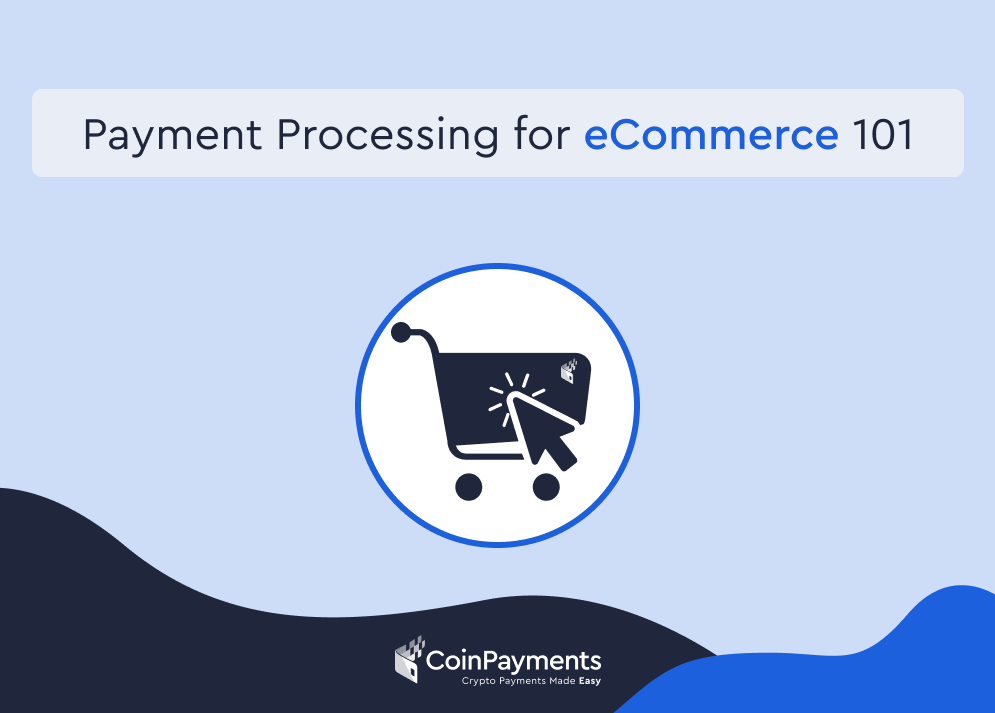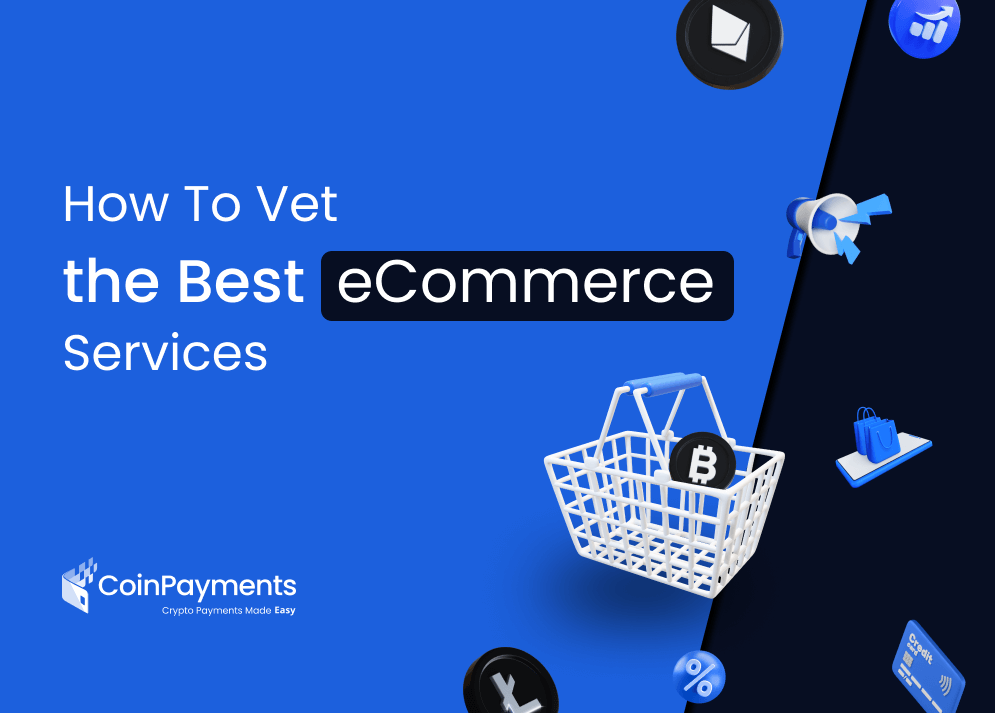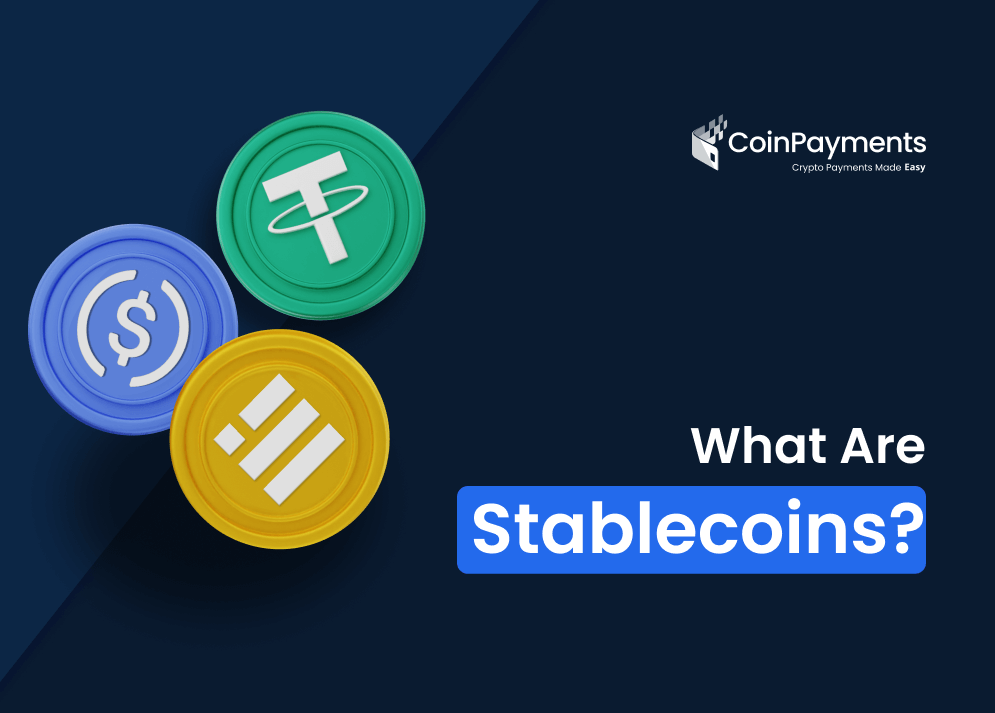
Payment Processing Crypto for a New World
With the rise of eCommerce and the transformation of the global retail industry after the COVID-19 pandemic, many small businesses are running around trying to figure out how to pivot their business to be either completely online or at least semi-online. Some of them have begun accepting cryptocurrency as a form of payment.
This is where a payment processor comes into play. Any business that wants to sell products or services online will need to partner with a processor to accept payments securely, including cryptocurrency.
CoinPayments is a popular and trusted payment processor for cryptocurrency because it offers an incomparable list of supported cryptocurrencies and incredibly low processing fees – as low as 0.5%.
Let’s clear up some misunderstandings about payment processing for eCommerce by defining terms and highlighting common pitfalls that businesses face when trying to establish and grow an online sales presence.
What is Payment Processing?
Merchants trying to sell goods or services online must set up a platform to facilitate online shopping and accept payments for purchases. A platform that provides both of these is called an eCommerce platform. The merchant fills the shopping space with their product or service, and the payment section is where the customer interacts with the payment processor to complete the transaction. The payment processor typically does the following:
- Asks the customer to submit payment information, including a credit or debit card number, billing address, and personal identifying information such as a first and last name and phone number
- Encrypts and sends submitted information to credit and debit card companies and banks via an exchange
- Approves or denies the transaction based on several factors, such as regulatory obligations and financial institution policies
The following terms will help break down what a payment processor does.
Merchant Accounts
Every merchant conducting business online that calls for monetary transactions needs a merchant account. A merchant account acts as a middleman between the payment received and the merchant’s business account. It cannot operate as a business account because it works as a buffer to ensure maximum transparency with what money is coming into the business and from where. This is standard practice in brick-and-mortar stores but is harder to understand with eCommerce websites, especially for small business owners.
In general, a dedicated merchant account acts as a holding area for the money received in a transaction before it can be cleared and then deposited into the business account. These payment service providers are the middlemen.
On the other hand, there are aggregate merchant accounts. Very few companies offer these because of the liability. It essentially is a payment gateway and a merchant account in one. Since the same processor offers the two services, the business owner has to manage one less account, but with the cost of a bit more liability hanging over their head.
Payment Gateways
A payment gateway allows for a secure transfer of a customer’s payment from the website to the payment processor, the merchant’s bank, and back again. Think of it as the security force of the whole transaction once buyers purchase their shopping carts. Many payment processors have their payment gateways associated with their platform.
However, it is possible to have another account with a third-party payment gateway that does this job for the payment processor.
Merchants should utilize a secure payment gateway like CoinPayments to protect their customers and their own interests and virtual assets. Merchant accounts become more susceptible to hacking and other illicit activity when they use an unsecured payment process.
Payment Processors
This term sometimes has a few different meanings or is used differently because it is more of an umbrella term. A payment processor can have the different elements discussed above integrated into its system. For example, it could have a payment gateway as part of the merchant’s package to help with payment processing online. However, for ease and clarity, this article will assume that it is not an integrated system.
The payment processor does most of the legwork verifying that the customer has the funds or credit to complete the order. The processor takes the information from the gateway after it has been encrypted and contacts both the acquiring entity (merchant) and the issuing bank (customer) to get the deal completed. Upon approval, the confirmation is sent. These systems are the lifeblood of the online economy, and a cut-rate payment processor could lead to headaches, privacy concerns, and other problems for consumers and merchants alike.
What To Look For In a Payment Processor
With a few of the more confusing terms perhaps understood a bit more, it is time to look at the lifeblood of online payment processing in the processors themselves. This section will look at what considerations should be taken to understand the pitfalls of some processors and what makes some processors superior.
PCI Compliance
The Payment Card Industry (PCI) Security Standards Council helps create laws and regulations for online payments. Before committing in any way to a payment processor, merchants should ensure that the processor they are considering is PCI-compliant. Failure to do so can result in fines, sanctions, and other punitive measures that merchants, especially smaller merchants, would do well to avoid. Choosing a PCI-compliant payment processor puts the merchant in the most advantageous position of being safe and secure for the future.
Forms of Payment
In this increasingly complicated world of currency, this section should not be overlooked. If there is a merchant with a large overseas customer base, some payment processors will not accept the currency of that customer base, essentially sending the business away. Since there is such a vast number of different currencies based on geography, knowing this information is essential. In addition to debit card and credit card payment processors for cardholders – such as Visa and Mastercard – it’s wise for a seller to look for a payment processor with integrations for alternate payment methods like PayPal, Apple Pay, Google Pay, Amazon Pay, and cryptocurrencies.
In addition, the world of cryptocurrency is growing larger and larger each day: over 300,000 Bitcoin transactions are completed each month. There are many projections that other cryptocurrencies will begin to take larger pieces of the online consumer market, especially because they typically have lower transaction fees than credit card purchases. Cryptocurrencies are also ideal for international purchases, as they are decentralized currencies that are not subject to interchange fees or rates when making a purchase.
With a digital wallet becoming a more significant part of how consumers want to pay for goods and services, finding a proper processor for cryptocurrency is important. CoinPayments has a vast arsenal of tools for merchants to use in accepting many different types of cryptocurrencies and offers hundreds of cryptocurrencies to help the merchant safely, securely, and readily accept various payment forms.
The Takeaway
Whether customers are shopping on the internet through a laptop, a mobile device, or a mobile app, as the age of technology continues, innovations in eCommerce will come along with it. By keeping these understandings and definitions in mind, merchants can ensure that their payment processing security, ease, and legality are always a part of their platforms.
Sources:
What Is a Payment Processor and Can It Pay Off for Your Business? | American Express
What Is a Merchant Account, and Do You Really Need One? | BusinessNewsDaily.com
Number of daily Bitcoin transactions worldwide from January 2017 to April 13, 2021 | Statista



